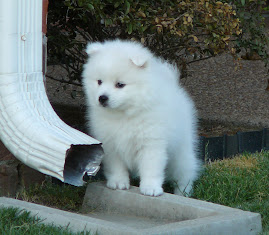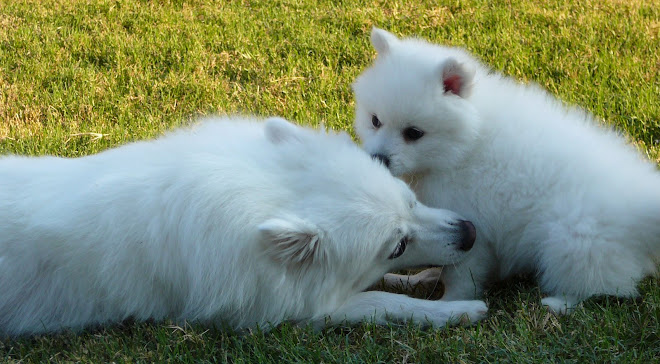 Written March 20, 2009
Written March 20, 2009Finally, winter is passé and spring has sprung! The trees are green again, the flowers are in bloom, and pretty soon, you will be working in your gardens and flower beds. Before you make that trip to your local home/garden improvement store to pick out what you will be planting this year, you'll want to make sure the plants are not harmful to the four-legged members of your family. Hopefully, the information provided below will help you make more educated plant choices.
Some of the most common poisonous plans include:
- Lilies (can cause severe kidney damage)
- Sago Palm (can cause vomiting, diarrhea, depression, seizures & liver failure)
- Tulips / Narcissus bulbs (can cause intense gastrointestinal irritation, drooling, loss of appetite, depression of the central nervous system, convulsions and cardiac problems)
- Azaleas / Rhododendron (can cause vomiting, drooling, diarrhea, weakness & depression of the central nervous system, coma and death)
- Oleanders (can cause gastrointestinal tract irritation, abnormal heart function, hypothermia and death)
- Castor Bean (can cause severe abdominal pain, drooling, vomiting, diarrhea, excessive thirst, weakness and loss of appetite, dehydration, muscle twitching, twitchings, seizures, coma and death.)
- Cyclamen (can cause significant gastrointestinal irritation, intense vomiting and death.)
- Kalanchoe (can cause gastrointestinal irritation and cardiac problems)
- Yew (can cause trembling, incoordination, difficulty breathing, gastrointestinal irritation, cardiac failure and death.)
- Amaryllis (can cause vomiting, depression, diarrhea, abdominal pain, hyersalivation, anorexia and tremors.)
- Autumn Crocus (can cause oral irritation, bloody vomiting, diarrhea, shock, multi-organ damage and bone marrow suppression.)
- Chrysanthemums (can cause gastrointestinal upset, drooling, vomiting, diarrhea, depression and loss of coordination.)
- English Ivy (can cause vomiting, abdominal pain, hypersalivation and diarrhea.)
- Pothos (can cause significant mechanical irritation and swelling or the oral tissues and other parts of the gastrointestinal tract.)
- Schefflera (can cause oral irritation, excessive drooling, vomiting, difficulty in swallowing and intense burning and irritation of the mouth, lips and tongue.)
It is important to remember that not only flowers and plants can be extremely toxic to your pets. Even some mulch can be harmful and potentially fatal. A fairly new brand of mulch, called Cocoa Mulch (sold by many garden supply stores, as well as Home Depot and Target) is manufactured by Hershey's and is known for is pleasant chocolaty smell. The smell is not only attractive to people, but to dogs, as well. The danger here is that this mulch, which is made from cocoa bean shells and contains Theobromine, which is fatally toxic to pets. Unfortunately, according to Dogster.com and Snopes.com, there have already been many pet deaths due to the ingestion of this particular type of mulch.
Remember, this blog contains only a short list of dangerous plants. For a more complete, searchable list, click this link (http://www.aspca.org/pet-care/poison-control/plants/). You will be directed to the ASPCA's poison control website.
If you are diligent in your efforts to ensure your yard does not contain toxic dangers, you and your pet will have a fun and safe playground to enjoy all spring and summer long!












